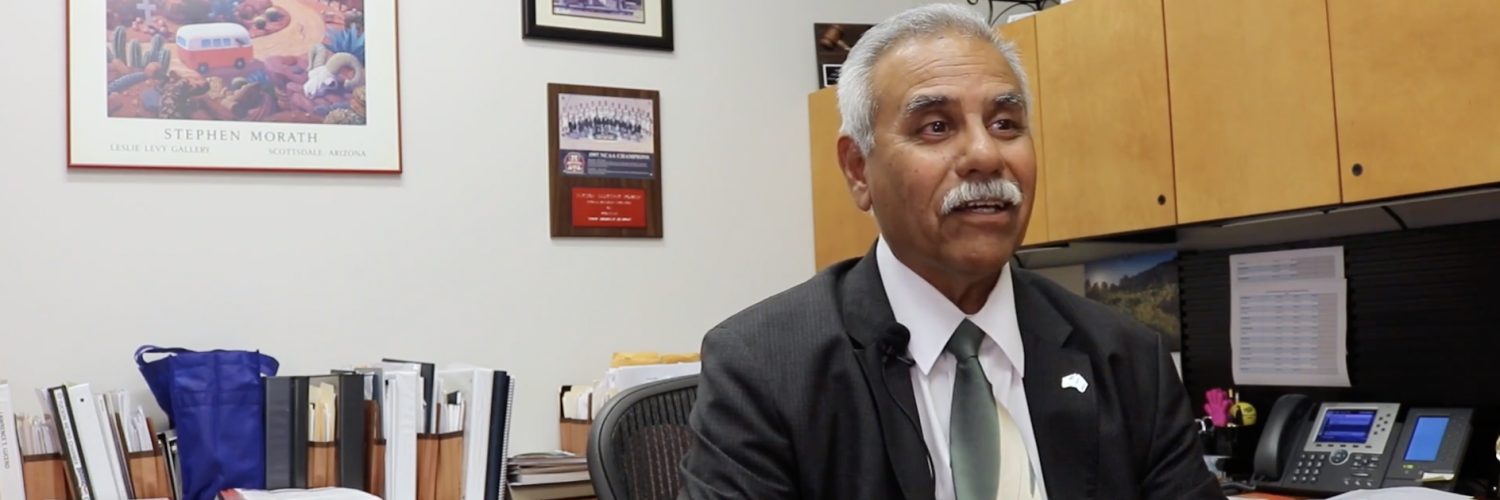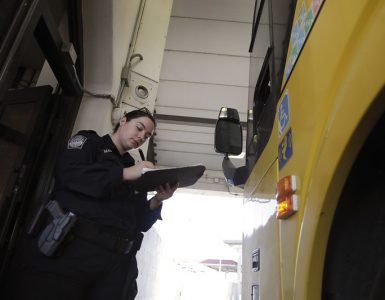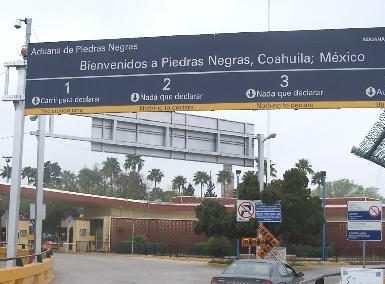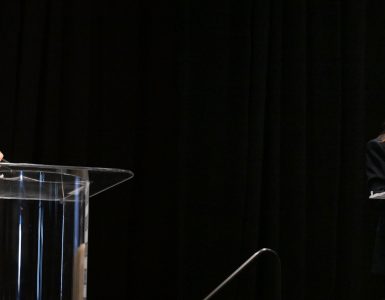Question: What is your professional background?
Answer: I’m the senior director for government relations, external affairs. That’s fancy language for I do lobbying for the company at the local, state and federal levels. I’ve been doing that for a long time here- over 25 years- and economic development has been a very big part of that. And so, it’s a great combination of the two and I’ve been doing that for, like I said, over 25 years here at Tucson Electric Power–UniSource Energy, we have three sister companies. Tucson Electric Power is the most known here headquartered in Tucson. We have two sister companies that provide services- gas and electric- in Santa Cruz, Mojave County, Yavapai, Coconino, Navajo counties. We’re all over the state.
Q: What is your role with the Arizona-Mexico Commission?
A: Well, I joined the Arizona-Mexico Commission as an individual member in the late eighties-early nineties. I’m not exactly sure when that happened, but I’ve been around close to 30 years as a member of the Commission. When I joined Tucson Electric Power, we joined in a much different manner and we became partners of the Commission back in ’92. So, since then I’ve been a member of the board of directors having been appointed to serve in that capacity. I’ve enjoyed that tenure and it’s been very fulfilling because of the mission of the Commission. It aligned very closely with what Tucson Electric Power is all about with respect to trade. We’re inextricably tied to our service territories and because our service territory really depends on the economic well-being of the region, we found that participating in the Commission was very beneficial. We made great contacts through the Commission, through its plenary sessions, through its conferences as well as the networking opportunities that were available to use. [It] allowed us to actually enter into some business opportunities in Mexico as well as in the U.S. that we wouldn’t have otherwise had a chance to form. It’s been very helpful. So, having said that the most important part, though, is the trade relationship. We’ve focused very, very much so on the trade relationship and making sure as an infrastructure company- you don’t think of us as an infrastructure company, but we are- that the basics of trade are ports of entry, highways, rail connections and such. We focus on making sure that Congress has been very aware of those infrastructure needs as well as the staffing needs for those facilities so that commerce can continue to flow as quickly as possible and as efficiently as possible. All of that helps our economies grow. We have a great dependency between us as a state, as a country with Mexico as our biggest trading partner. So, that’s a very important consideration as a company here that our economy continues to grow.
Q: Why do you think the work the Arizona-Mexico Commission does is important for Arizona?
A: Well, Mexico is Arizona’s largest trading partner. With Tucson located so close to ports and to the border, we have seen it firsthand that the trade relationship is very important for Arizona. Hundreds of thousands of jobs are dependent upon it and as a result, we can’t stress the importance of that trade relationship. As an infrastructure company, we can’t pull up our poles and wires and find a better economy, so we focus on what makes the economy thrive here. One of the key elements and critical parts of our economy here is the trade relationship. So, we have found that to be the reason why we should be involved with the Commission. Since the early nineties when I joined the company we became a full partner with the Arizona-Mexico Commission to see what we could help with and more importantly if there were opportunities for us to participate in the trade relationship. We have been fortunate to form alliances with manufacturers in Sonora to import poles for a while and such so that we have actually participated in that trade relationship directly.
Q: Why is it important for Arizona to focus on maintaining and continuously building a relationship with Mexico?
A: It was said 60 years ago that God created us as neighbors and so we should be good neighbors. Good neighbors look at opportunities for mutual benefit. So, our governors back in 1959- Fannin as well as Obregon- realized that doing business was a great relationship. But, they recognized immediately that our relationship was much deeper than that. The foundation has been basically because of the regional proximity, but more importantly the cultural similarities and the cultural overlap of our region has been very beneficial to creating great opportunities for trade. As a neighbor you look at the strengths of each partner and you try to build on those. It’s important for us then to focus on ‘OK, how can we continue to grow that trade relationship?’ And, we’ve been very sophisticated as a commission in pursuing new committees that will touch on subjects that are of great importance on both sides of the border. And, whether it was in real estate, whether it was in education, public health, more recently in emergency management mutual aid aspects have been very important to furthering the relationship between the two entities. It’s not only about business- it’s about education, it’s about creating a safer environment for our entire region which has been possible as a result of this great platform that we’ve had available.
Q: The Arizona-Mexico Commission is celebrating its 60th anniversary. What do you think has been its biggest achievement in the last 60 years?
A: We are neighbors and there’s a great opportunity with your neighbors to look for mutual benefit. And, I think that over time we’ve realized that in order for us to be successful, we needed to do deeper dives into some of the particular issues that were either obstacles to trade or just simple challenges that we have as a region that needed to be addressed. We’ve been very successful by forming binational committees with great private sector and public sector expertise that have co-chaired and come up with solutions to problems as well as creating new opportunities for trade to expand. That’s been, I think, our biggest asset for those 60 years- that we’ve tackled tough issues, we’ve come up with solutions and we’ve implemented very workable, practical solutions that have been successful in a variety of areas. Whether it’s in sports, whether it’s in education, whether it’s in health, real estate, we’ve touched on a variety of subjects that are very important. As we become more and more sophisticated, the transportation sector will be critical for our success. Mining will continue to grow and expand. We see the future is very bright, but we have built that future on a platform through hard work, trust and a very mutually beneficial relationship where one side has benefitted as much as the other. That, I think at the end of the day, we are all very pleased that the relationship has continued to grow and will continue to grow over the next 60 years. So, I’m very optimistic that the platform we have today is going to be the platform for the future and create new opportunities for our citizens on both sides.
Q: What is your top priority for 2019?
A: First and foremost, we need to let the world know that the Arizona-Mexico Commission is a unique creature that has been around for 60 years. Very few organizations continue to grow and evolve over a 60-year period, six decades, unless they were relevant. We have found that the underpinning of that trade relationship between Arizona and Sonora and the U.S. and Mexico has a lot of challenges, but here we have a structure that offers us an opportunity to vet issues and come up with solutions. And, I think it’s a unique structure, I think it’s an envy of all the other states on the border. And, it’s the envy of the other states that share a common border with Canada that see this organization as a unique way to further the trade relationship. And, I must give credit- it’s always been led by the governor and I’ve served with many governors. Governor Ducey has been a champion for that trade relationship and I’m very proud to know that he is wholeheartedly in support of furthering that trade relationship. So, as a business person he is seeing the benefits of it. But, he also sees in his vision that the trade relationship goes way beyond just the business trade. It’s infrastructure, it’s about good policy and it’s about making sure that those policies do not get in the way of the trade relationship.
Q: What is your favorite memory with the Arizona-Mexico Commission?
A: As a long-time member there are many, many great memories. I think the memory of seeing our leadership of the two states continuously recognize the value of the trade relationship, the cultural relationship, the family relationships that exist and not eroding those relationships- building on those. Every governor that has served in those six decades have realized that and have grown that relationship over time. So, I’m proud to see that our leadership has always found the Commission an important platform upon which to exercise that relationship.
Q: Is there anything else you would like to add?
A: The networking opportunities that have been available for all participants or members of the Arizona-Mexico Commission or the Sonora-Arizona Commission from Sonora that participate. The networking opportunities have been tremendous. We do have formal meetings and then we have breaks. And, during those breaks, during the social hours or during the dinners that we’ve conducted, a tremendous amount of business has been transacted. Opportunities have been identified, new relationships have been formed that have led to new opportunities for our region, which has been a really exciting part of who we are. And, that is to have had an opportunity to have an organization that has allowed that to flourish. So, that’s been a real exciting part of our involvement.
















Add comment